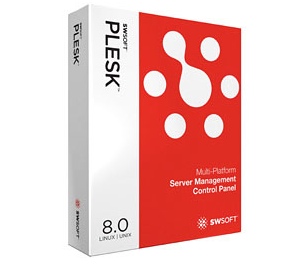 When we say “Ethics” we usually address questions about morality. In business the term “Ethics” (Business Ethics) refers to a form of applied ethics that examines ethical principles and problems that emerge in a business environment. Term “Ethics” applies to all aspects of business… even to web hosting business, despite that many hosting providers obviously disagree with this (a conclusion we would make when carefully review their offerings, customer service and the way they promote themselves on the market).
When we say “Ethics” we usually address questions about morality. In business the term “Ethics” (Business Ethics) refers to a form of applied ethics that examines ethical principles and problems that emerge in a business environment. Term “Ethics” applies to all aspects of business… even to web hosting business, despite that many hosting providers obviously disagree with this (a conclusion we would make when carefully review their offerings, customer service and the way they promote themselves on the market).
I shall say that as any other markets of intangible business activities web hosting is quite unethical business. In general the web hosting market is more a competition of promotional techniques than a competition based on quality. The unethical competition was introduced into web hosting industry by the largest web hosts like Yahoo (the first major web host to introduce “unlimited disc space” in offerings) and many others who begun using disputable business practices to get customers and to fight competition. One of those practices is to give a hosting company a name which is very close to the one of already well-established market brand.
This was the case with RackShack, a popular dedicated hosting provider at the beginning of this decade. It attracted a lot of attention not just because of its aggressive dedicated server offerings, which included zero set0up fess cheap hardware and very poor technical support, but also because of manipulating the consumers by exploiting the concept and the name of an already well-established and very popular web hosting brand such as RackSpace.
Beginning with a conclusion that web hosting is in general unethical business – with both web hosting providers and their customers being unethical – in this “Have you say” story” B10WH will point your attention to an ordinary discussion titled “Is it ethical web host practice?” which is taking place Web Hosting Talk forums titled. It was opened by a forum member signed as Jon.
“I’ll try to give my account as objectively as I can. I’m pretty upset/disappointed with my web host right now. What I want to know, is Is this how web hosts should treat their customers?” says Jon and explains that he went on vacation for 10 days, checking online for orders and was surprised that he hasn’t received any. He added that he was always on public computers and he had his emails forwarded to his Yahoo Mail.
When he got back for vacation, I found that I couldn’t access his e-mails directly and he also saw his website was “gone and in its place was a bunch of pay per click adds, with a note on top that the domain was expired”. Jon thought he had paid up for another year, and that decided that his web host would never treat him like. So he assumes that someone was pirating his website.
But when he has contacted his web hosting provider the company’s representative told him that he has paid his web hosting plan but his domain was for some reason left unpaid and expired. The Credit card Jon had on account with the web host has also expired.
At this point he would decide that it was obviously his fault that his domain wasn’t renewed in time. However Jon went to Web Hosting talk and said:
“At this point I’m somewhat tiffed that they would not only take down my site, but replace it with pay per click adds, but think “hey, certainly they tried to contact me. My email address I have on file with them must be out of date”. So I go into cpanel to update it, but no, it is current. They never even tried to contact me, not even sending an email.”
Jon explained to WHT members that his website “had no traffic for a week and a half” and at the time he opened a thread in the forum his site still “wasn’t showing up on Google searches”. “My traffic is down to 1/3 of normal. Seems I’ve heard that Google penalizes sites that are entirely made up of pay per click adds, and I think it likely that my site has been penalized because of my web hosts actions”, said Jon and asked “It’s impossible to determine how much this will end up costing me. I feel that when you hire somebody (i.e. a webhost) they should be on your side, not stab you in the back. I don’t know if what they did was illegal, but I certainly think it was unethical”. The he asked the forum members – “What is your take?”.
What have you said?
“Maniakaz” a WHT user from Lithuania responded: “If it is domain that expires, you should have received warning emails. At least I do get them from GoDaddy: warning, your domain expires after xx days, click there to renew it. Maybe these emails went to “spam” folder? re-check. Or ask a host if they did sent these emails. I think, you may want to change registrar to something more reliable, like Godaddy. And your host’s practices are weird. I can’t call it unethical: if client knows he will not receive any domain expiring email – customer should decide”.
Another forum member “Rumsfo” responded with these three sentences – “I assume uptime that is very important issue for the Google as for any other SE. I assume you need to move to another web hosting service and ask for the refund. I assume that would be fair enough”. This comment wasn’t very much on the topic, but the next one posted by member “Bihira” was pretty specific.
“Most hosting companies don’t use the email address in cPanel as the main contact for customer accounts. More than likely they have a billing script, you should look for this script and update your email address there. Also it’s pretty normal for registrars to put up ads on expired domains (e.g. I bilieve GoDaddy does this as well). Not saying it is right, but it’s unfortuantly the norm. Also I would never recommand GoDaddy as a registrar, just check out nodaddy.com for horror stories. Though generally it’s better if you keep your webhost and domain at seperate companies”, explained Bihira. The WHT user added that “there isn’t nothing your webhost could of done”, and explained that since Jon had an unpaid invoice for his domain the web host couldn’t renew the domain name before receiving a payment. “As they get charged a fee everytime they renew / register / transfer a domain. So they need to wait for you to pay the invoice” said also Bihira.
Another member with a forum name “fobic” singed as Chris said that he was “with Bihira on this one”. “To put it bluntly, you didn’t pay your domain renewal so it expired. Expired domains commonly show the registrar’s parking page – the ads page you saw is most likely the standard page for whatever registrar your host uses”, said Chris and added that the web host should have tried to contact Jon about the domain expiration and about the expired credit card on account. “I’m betting they did email you about this. For some reason you didn’t receive their emails and that’s unfortunate, but ultimately it’s still your responsibility to keep your details up to date and pay your bills on time” concluded Chris.
“NeutroHost [Nix]” posted that since it was a domain name issue, it was probably not the host’s fault. “The reality is that most webhosts resell through a domain name registrar like Enom or Namecheap and the ads are placed on your website by the domain name registrar when your domain name expires, not the host” said Nix and added “I can understand your frustration with the matter though, but it’s been the norm for a long time”.
“Sorry to hear about your troubles. Did you find out if your host tried to contact you? I would think at the very least the domain registrar send out a notice, unless your name and email address isn’t on the domain. You should make sure that your the registrant contact for any domain you own and keep the contact email address up-to-date at the domain registrar”, said “SphereWebHosting” in their post.
Then a pretty harsh but true comment came. A WHT member named “ieee488” said:
In all likelihood this is what happened. All domain registrars that I have used, and I have used about 6+ different ones, they notifiy you 60 days, sometimes 90 days in advance that your domain is expiring. That you didn’t get an email tells me either those emails went into your spam folder or you used a different email when registering your domain.
The person Jon should be pointing the finger at is HIMSELF.
The “ieee488” added that before Jon start throwing words like ‘unethical’ he had better know what he were doing and understand the actualy workings of webhosting and domain registration. “Otherwise, you look like an idiot”, said Ieee488. and added “My take is that you stabbed yourself in the back unless you for some reason pay for webhosting and domain registration combined”.
Jon obviously got affected from the last comment and responded: “This is why I posted the experience and asked if it was unethical, as it seemed to me. It’s also why I didn’t identify the web host. There is no need for name calling. I appreciate the comments about contact emails other than on cpanel. I’m sure that messages didn’t get sent to my spam folder, but I’ll look for other places they may have my email address on file”, said the troubled site owner.
“Jon, a hard lesson learned, unfortunately. IMO, (and I know many hosts will hate me for saying this), but I would never register my domain via a web host. I want complete autonomy for the domain registration. Register all your domains directly with an authorized registrar, and then buy your hosting from a web host. Keep them separate. And then make sure you stay on top of your domain renewals to ensure you don’t go through this grief again”, said someone with forum member “Vito” and his opinion was one of the best to the thread.
Then “ieee488” came again posting in aggressive style: “I repeat. No need to use the word ‘unethical’. You should have asked what could have happened and just leave it at that. I have no use for people who hide behind “what do you think?” after they have just accused someone of being ‘unethical’. Gutless.”, was his next post to the thread.
A WHT member “HostColor” suggested in the next post that that Jon must not be disappointed and must not blame his web hosting provider. “You are responsible for the domain name as it is yours. Even if the hosting provider didn’t send a notification you still had to take care of the domain renewal. It is your web address, your property”, explained “HostColor”.
THe user added that the domain registrar was probably the one to point the name servers to page different from Jon’s index page and displayed ads there. “This is another way for domain registrars to make money of expired domain names”, added the WHT user. His final suggestion to Jon was “Just keep everything into account. A reasonable question would be “Why did I miss to renew my domain name?”
These are only a few selected opinions expressed from WHt members in the thread titled “Is this ethical web host practice?“. I would say that it shows very clear that not just the providers are those who act unethical in web hosting industry. In fact Jon didn’t been unethical and didn’t harmed its web host’s reputation by posting company’s name in the thread in which he expressed his disappointment of the service. Although Jon haven’t been responsible enough for renewing his domain name on time he was decent in his WHT thread, something that is ethical in an unethical market.
 The latest virtualization technologies, their Cloud-adapted versions and Virtual Data Center solutions make the implementation of a disaster recovery scenario and data protection much easier for business in comparison with the technologies we have just five years ago. What only corporations had in the past is available now to midi and even to small businesses at reasonable cost. According to Antony Adshead of Computer Weekly the new technologies are simply “removing excuses for not doing eisaster recovery protection”.
The latest virtualization technologies, their Cloud-adapted versions and Virtual Data Center solutions make the implementation of a disaster recovery scenario and data protection much easier for business in comparison with the technologies we have just five years ago. What only corporations had in the past is available now to midi and even to small businesses at reasonable cost. According to Antony Adshead of Computer Weekly the new technologies are simply “removing excuses for not doing eisaster recovery protection”. Germany’s United Internet bought web hosting company Strato, owned by Deutsche Telekom. According to the reports in the press, United Internet paid for around €600 million ($629 million) in cash. It takes on 2 million customer contracts and approximately €130 million in annual revenue. This another step toward consolidation of the European web hosting market. The company already owns popular web hosting, domain registration and online service brands 1 & 1, FastHosts, InternetX, Sedo, Web.de, GMX, Mail.com, etc.
Germany’s United Internet bought web hosting company Strato, owned by Deutsche Telekom. According to the reports in the press, United Internet paid for around €600 million ($629 million) in cash. It takes on 2 million customer contracts and approximately €130 million in annual revenue. This another step toward consolidation of the European web hosting market. The company already owns popular web hosting, domain registration and online service brands 1 & 1, FastHosts, InternetX, Sedo, Web.de, GMX, Mail.com, etc.

